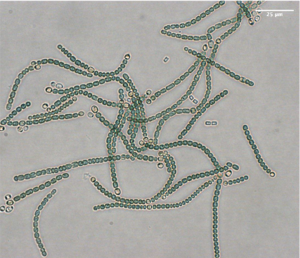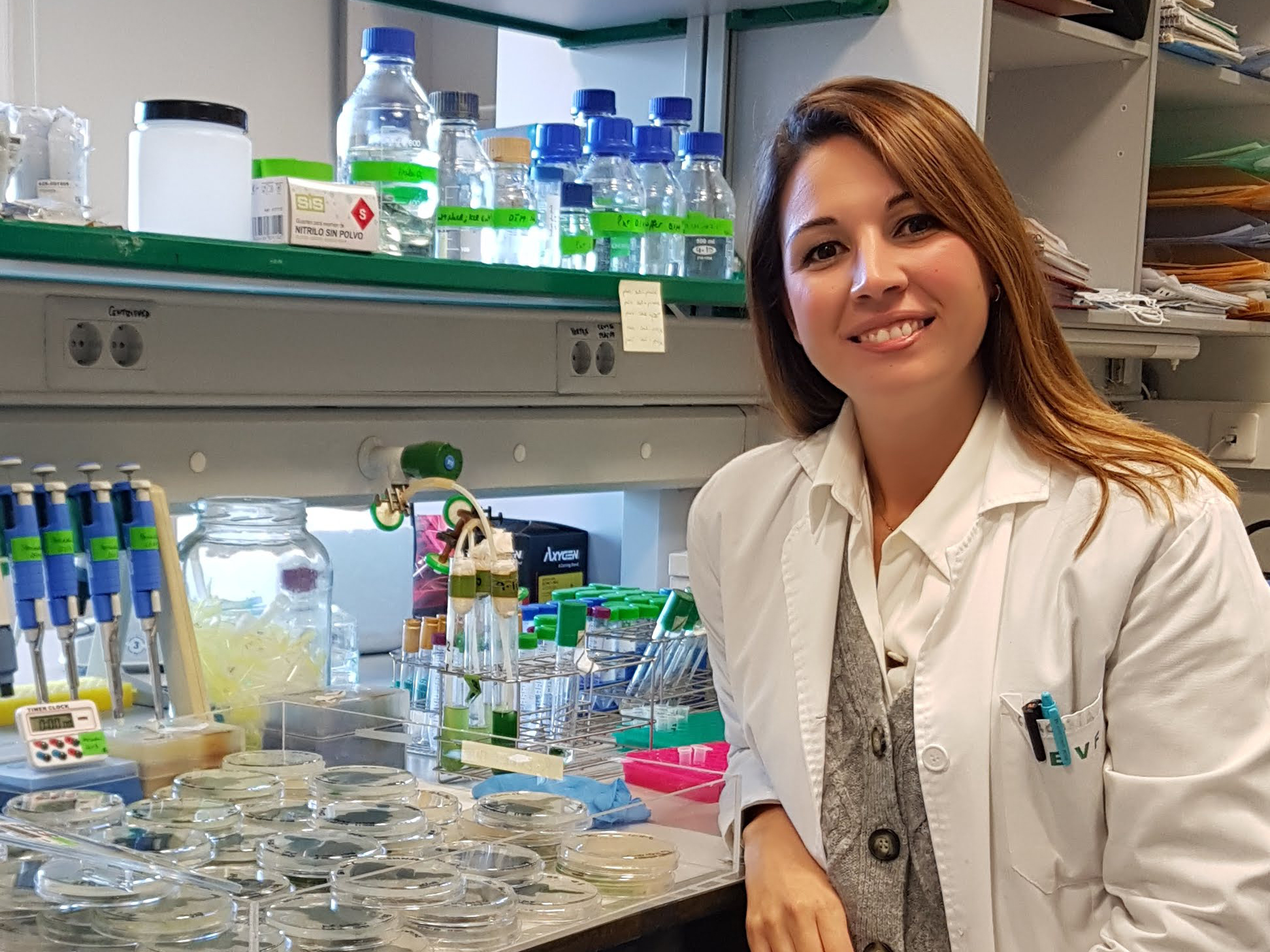Mercedes Nieves Morión, current postdoctoral researcher at the Institute of Plant Biochemistry and Photosynthesis (IBVF), has obtained the Extraordinary Doctorate Award in the category of Biochemistry and Molecular Biology for her thesis defended in the 2017-2018 academic year.
Mercedes completed her doctoral thesis in the IBVF’s Developmental Biology in Cyanobacteria research group thanks to a grant/contract for University Teacher Training (FPU), under the direction of Dr. Enrique Flores and tutoring of Dr. José María Romero.
In her thesis, Mercedes focused her research on the field of cyanobacteria, photosynthetic prokaryotic organisms of great importance in the evolution of life on Earth due to their role in the oxygenation of our planet and being the precursors of the chloroplasts of plants and algae. Specifically, her studies focused on the use of microbiological, genetic and molecular techniques applied to the filamentous cyanobacterium Anabaena sp., which is a model for the study of nitrogen fixation, cell differentiation and multicellularity in the bacterial world. Among the results of her research are the identification of a diffusion mechanism in intercellular communication in filamentous cyanobacteria, the characterization of glycoside transporters related to sugar assimilation that indicated the mixotrophic nature of this model cyanobacterium, and the influence of these transporters on septal connections between cells (“septal junctions”) for the correct functioning of intercellular communication. The results obtained in the thesis were published in leading scientific journals in the field of Microbiology and presented at national and international conferences. In addition, Mercedes taught at the University of Seville (Department of Plant Biochemistry and Molecular Biology) and completed a stay at Queen Mary University of London (School of Biological and Chemical Sciences), thereby obtaining a PhD with international recognition.
Optical microscopy image of the cyanobacterium Anabaena sp. PCC 7120
Her training and the experience acquired during her predoctoral years allowed her to obtain a postdoctoral contract at Stockholm University (Department of Ecology, Environment and Plant Sciences) to study symbiotic cyanobacteria with diatom algae. After completing this stage (2018-2020), she joined the IBVF as a doctoral research staff with a contract from the Junta de Andalucía aimed at the recovery of researchers from foreign centers. The line of research she is currently working on is based on the study of planktonic symbiosis between marine photosynthetic organisms, diatoms and nitrogen-fixing cyanobacteria. Her main objective is to define the molecular exchanges that take place between symbionts in these marine associations, which are of great ecological relevance due to their contribution to the carbon and nitrogen cycles in the biosphere.

Optical microscopy image of the cyanobacterium Anabaena sp. PCC 7120
Her training and the experience acquired during her predoctoral years allowed her to obtain a postdoctoral contract at Stockholm University (Department of Ecology, Environment and Plant Sciences) to study symbiotic cyanobacteria with diatom algae. After completing this stage (2018-2020), she joined the IBVF as a doctoral research staff with a contract from the Junta de Andalucía aimed at the recovery of researchers from foreign centers. The line of research she is currently working on is based on the study of planktonic symbiosis between marine photosynthetic organisms, diatoms and nitrogen-fixing cyanobacteria, her main objective being to define the molecular exchanges that take place between symbionts in these marine associations, which are of great ecological relevance due to their contribution to the carbon and nitrogen cycles in the biosphere.



